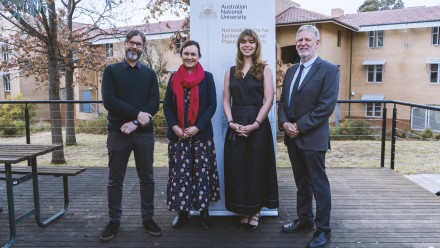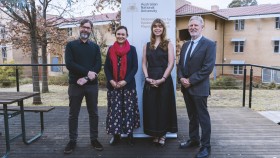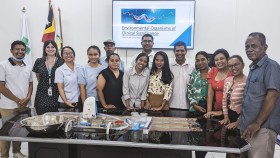New funding for dementia research projects
Share
The Dementia Collaborative Research Centres (DCRCs) have announced 26 grants totalling more than $2.3 million for funding novel dementia research.
Successful projects range from $200,000 to fund research into the social and biomedical risk factors for dementia in Aboriginal Australians to $38,000 to research how the neighbourhood environment influences brain and cognitive health in older adults.
“We were very impressed with the standard and novelty of applications which the DCRCs required to fit with the NHMRC National Institute of Dementia Research (NNIDR) priorities,” said Professor Kaarin Anstey, Director of the DCRC for Prevention and Early Diagnosis based at The Australian National University (ANU).
According to the Australian Institute of Health and Welfare more than 340,000 Australians were estimated to have dementia in 2015. Based on projections of population ageing and growth, the number of people with dementia will reach almost 400,000 by 2020, and around 900,000 by 2050.
“Dementia can affect anyone, both as a person with the condition, and as a carer, regardless of race, gender or culture. The DCRCs were particularly impressed with the depth and level of understanding from the research community about the assessment and care of people with dementia to address their physical, social, and psychological needs, and the needs of their carers,” said Professor Elizabeth Beattie, Director of the DCRC for Carers and Consumers based at the Queensland University of Technology (QUT).
Grants were awarded across a spectrum of areas, from prevention and assessment, treatment, and care of people living with dementia.
Projects range from research to improve quality of life for people with dementia and carers who develop depression, to improving provider’s capacity to deliver Consumer Directed Care, to supporting optimum day care respite for people with dementia, to improving the accessibility of airports for travellers with dementia, to developing eLearning resources for those managing behavioural and psychological symptoms of dementia in lesbian, gay, bisexual, transgender and intersex people.
Of course, it’s not all about the research.
“The DCRCs are unique in that they are mandated to ensure that the research undertaken has a focus on knowledge translation,” said Professor Henry Brodaty, Director of the DCRC for Assessment and Better Care based at the University of New South Wales.
“The DCRCs received more high quality applications than they were able to fund which is both a reflection of the current funding environment in Australia, and of the range, quality and importance of dementia research,” said Professor Anstey.
“If the Directors and Expert Panellists were to advise any applicants on the nature of success for future DCRC dementia research grants, it would be to strengthen the knowledge translation aspect of the application so that it is equal to the scientific rigour and integrity of the research that is proposed,” she said.
“These research projects are a great opportunity to further our pursuits in dementia research and will benefit the entire dementia research community. They will build on the fast developing strengths of dementia research in this country,” said Professor John McCallum, Director, NNIDR which funds the research activities of each DCRC.
The exhaustive NHMRC-style assessment process involved almost 30 expert researchers, clinicians and consumers involved in dementia, who assessed 208 applications from public and private institutions Australia-wide.
There are three Dementia Collaborative Research Centres spread across three universities in Australia. Each Centre focuses on one aspect of research in either early diagnosis and prevention, assessment and better care, or carers and consumers.
For a full list of successful applicants go to the dementia research website.
Contact:
Professor Kaarin Anstey, Director, DCRC-EDP Ph: 02 6125 8410
Professor Elizabeth Beattie, Director, DCRC-CC Ph: 0423 848 635
Heather Hubble, Manager, Dementia Collaborative Research Centre, Ph 6125 2584. E: heather.hubble@anu.edu.au











